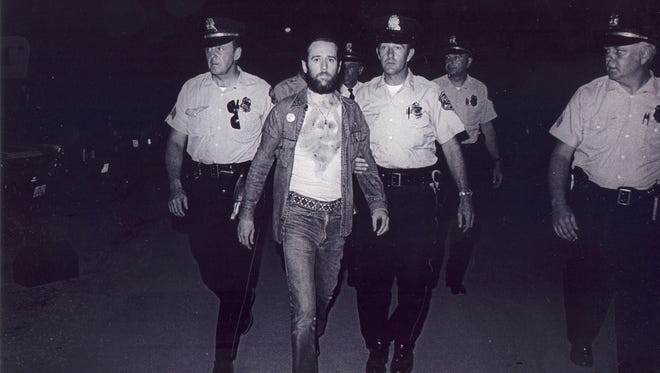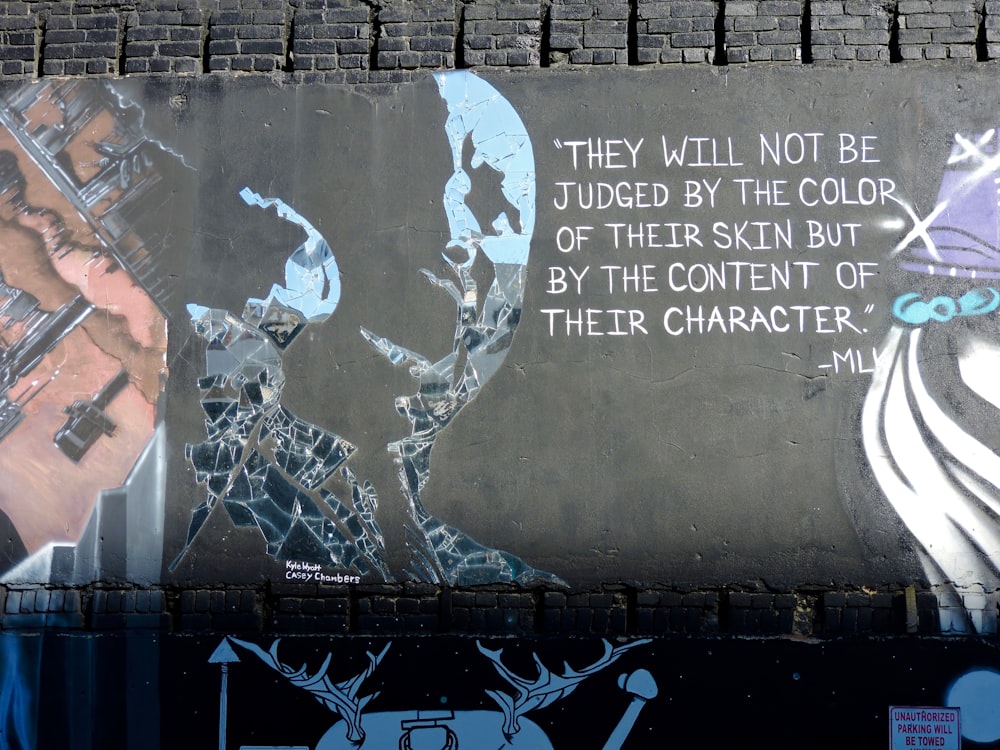Americans are less free in 2023 than just a couple years ago.
While some may see Florida’s assault on books, school curriculum, and higher education as an aberration, censorship, bans, and curriculum gag orders are increasingly common across the US, as reported by Eesha Pendharkar:
This is the third year in a row in which Republican lawmakers have increased their legislative efforts to restrict LGBTQ students’ rights and curtail lessons, books, and other materials about LGBTQ people.
“There certainly seems to be renewed energy around passing censorship legislation around LGBTQ identity, which is law really only in one state,” said Jeremy Young, the senior manager of free expression and education at PEN America.
“But that’s likely to increase dramatically this year.”
Since 2021, lawmakers in 22 states have introduced 42 bills with language and restrictions similar to those in the “Don’t Say Gay” measure, formally known as the Parental Rights in Education law. Since the start of this legislative session, 26 of those bills have been introduced in 14 states that use the same language as Florida’s law, with many imposing more severe restrictions compared with the original bill, which Gov. Ron DeSantis, a Republican, signed in 2022.
Florida’s ‘Don’t Say Gay’ Law Continues to Spur More Extreme Versions Nationwide
Republicans and conservatives have launched a campaign to ban books, censor ideas and topics in schools from elementary school through higher education, eradicate academic freedom, and indoctrinate children by seizing control of education through legislation.
These legislative attacks target the LGBTQ+ community, minoritized races, the legacy and history of racism in the US, and everyone who embraces a pluralistic democracy.
I am advocating here a companion month of solidarity in May 2023 that builds on National Days of Teaching Truth in 2022.
Please contact me by email paul(dot)thomas(at)furman(dot)edu or message me through Twitter if you’d like to sign on in support or offer any events that carry this tag #standwiththebanned.
Below I will list signees, individuals or groups/organizations, who offer support as well as list resources for fighting bans and censorship.
I will also be posting day-by-day books, texts, and authors. for the entire month of May 2023.
How many book bans were attempted in your state? Use this map to find out
We Stand with the Banned
Paul Thomas, Professor of Education, Furman University
Katie Kelly, Associate Professor of Education, Furman University
Brandon Inabinet, Professor of Communication Studies, Furman University
Victoria L. Turgeon, Academic Director of Prisma Health Partnerships, Professor of Biology & Neuroscience, Furman University
Miles Dame, Outreach Assistant, Furman University Libraries, and Facilitator with Freedom in Libraries Advocacy Group
Mary Howard, author
Rosemarie Jensen
Chris Goering, University of Arkansas
Deborah Cromer
Ellen Hopkins, author
Michael E. Jennings, Professor of Education, Furman University
Emily Pendergrass, Associate Professor of Literacy, Peabody College
Shameera Virani, Clinical Faculty, Department of Education, Furman University
Jack Awtrey, Instructional Coach, Chandler Creek Elementary School
Roxanne Henkin, Professor Emeritus at University of Texas at San Antonio
Rick Meyer, Regents professor emeritus, University of New Mexico
Sherry Kinzel, Literacy Coach Trainer, The Ohio State University
Day-by-Day Books, Texts, and Authors: May 2023
Banned in the USA: State Laws Supercharge Book Suppression in Schools – PEN America
May 1:
The Handmaid’s Tale (Graphic Novel): A Novel by Margaret Atwood and Renee Nault
The Handmaid’s Tale, Margaret Atwood
“Freedom From” as Totalitarian Rhetoric
May 2:
The Hate U Give, Angie Thomas
All Boys Aren’t Blue, George M. Johnson
May 3:
Things Fall Apart for Women (Again): Leni Zumas’s Red Clocks

Open Letter on Fighting “Anti-Woke” Censorship of Intersectionality and Black Feminism
May 4:

Most-Banned Author in America Calls BS on Parents’ ‘Concern’
May 5:
Karl Marx: ten things to read if you want to understand him
Karl Marx (b. 5 May 1818)
May 6:
“Let America Be America Again,” Langston Hughes
Listening to Langston Hughes about “Make America Great Again”
Love to Langston, Tony Medina

May 7:
You Can’t Be Neutral on a Moving Train: A Personal History of Our Times, Howard Zinn
May 8:
Gender Queer: A Memoir, Maia Kobabe
Art from the most banned book in the country on display in San Rafael
What to Do When Your Kid Is Reading a Book That Makes You Uncomfortable

May 9:
“We Wear the Mask,” Paul Laurence Dunbar

May 10:
The Transformation of Silence into Language and Action, Audre Lorde

May 11:
Why our future depends on libraries, reading and daydreaming, Neil Gaiman
Asked to Delete References to Racism From Her Book, an Author Refused
Love in the Library, Maggie Tokuda-Hall
May 12:
George Carlin (May 12, 1937 – June 22, 2008)

May 13:
Eugene V. Debs: Statement September 18, 1918
Kurt Vonnegut letter on censorship
May 14:
We Real Cool: Black Men and Masculinity, bell hooks
White Lies, Black Incarceration, and the Promise of Reading in Prison
May 15:
Final Words of Advice/ “Where do we go from here?” (1967), Martin Luther King Jr.
May 16:
“Diving into the Wreck,” Adrienne Rich (b. 16 May 1929)
May 17:
“A Report from Occupied Territory,” James Baldwin
Time Magazine (James Baldwin, 17 May 1963)
Letter from a Region in My Mind, James Baldwin
May 18:
“Peculiar Benefits,” Roxane Gay
There is No “E” in Zombi Which Means There Can Be No You Or We, Roxane Gay
Investigating Zombi(e)s to Foster Genre Awareness
May 19:
A Raisin in the Sun, Lorraine Hansberry (b. 19 May 1930)
Malcolm X (born Malcolm Little, later Malik el-Shabazz; May 19, 1925 – February 21, 1965)
Malcolm X press conference on deadly police raid in Los Angeles (footage excerpt, 1962)
Caribbean Matters: On Malcolm X’s birthday, remember that his mother’s Caribbean roots shaped him
May 20:
Maus, Art Spiegelman
A professor has offered to teach Maus to all students affected by its ban.
May 21:
The Mis-Education of the Negro, Carter Godwin Woodson
May 22:
“Harlem,” Langston Hughes
May 23:
Woman in the Nineteenth Century, Margaret Fuller (b. 23 May 1810)
May 24:
Mississippi Goddam, Nina Simone
May 25:
You Want a Confederate Monument? My Body Is a Confederate Monument, Caroline Randall Williams
My Book Is Horrifying. My Book Is a Lifeline. My Book Is Banned, Patricia McCormick
SOLD, Patricia McCormick

May 26:
What These Children Are Like, Ralph Ellison
No Crisis, No Miracles: The False Narratives of Education Journalism
If Black English Isn’t a Language, Then Tell Me, What Is?, James Baldwin
May 27:
The Bluest Eye, Toni Morrison
May 28:
“We Real Cool,” Gwendolyn Brooks
May 29:
The Soul of Man under Socialism, Oscar Wilde
May 30:
“Incident,” Countee Cullen (b. 30 May 1903)
Banning the N-word on campus ain’t the answer — it censors Black professors like me, Vershawn Ashanti Young
May 31:
“I Sing the Body Electric,” Walt Whitman (b. 31 May 1819)
Resources
Please download and share:






NCTE Intellectual Freedom Center

Banned in the USA: The Growing Movement to Censor Books in Schools
“Only Cowards Ban Books” T-shirt HERE
NEPC:
- NEPC Review: How to Regulate Critical Race Theory in Schools: A Primer and Model Legislation (Manhattan Institute, August 2021)
- Critical Race Theory: What It Is. And What It Is Not. A Q&A With Adrienne Dixson
- Understanding the Attacks on Critical Race Theory













































































